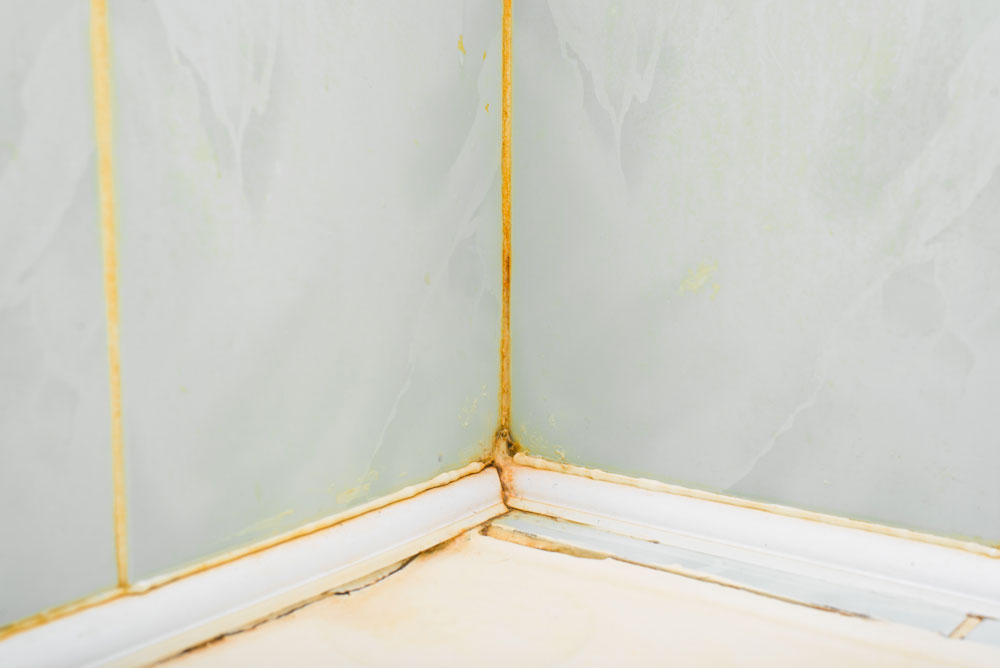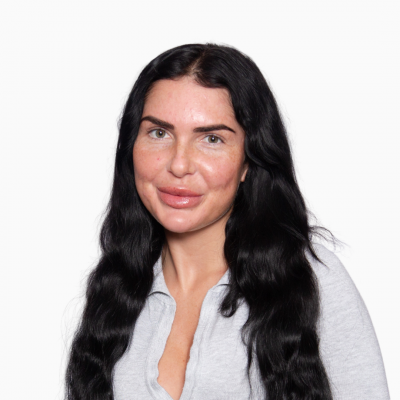What Causes Yellow Mould On Walls?
? CONTENTS
CONTENTS
- What is yellow mould?
- What causes yellow mould on walls?
- Is yellow mould dangerous?
- How to get rid of yellow mould on walls
- Book your mould remediation today
A yellow patch of fungus on your wall is not just an unsightly addition to your home. It can also put people at risk of a range of health problems. Young children, elderly people, and people with pre-existing health conditions or weakened immune systems are especially vulnerable to mould exposure. You must have mould removed from your home as soon as you spot it.
Here at ICE Cleaning, our mould removal services can eliminate all the mould from your property and significantly improve the air quality. Our Dewpoint-accredited technicians can also pinpoint the cause of the mould in your home and advise on how to prevent it returning in the future.
Keep reading to find out more about yellow mould and what causes it to grow on walls.
What is yellow mould?
Mould is a type of fungus that thrives in environments that contain excess moisture. It reproduces by releasing invisible mould spores that travel through the air. When these land on surfaces that provide mould with suitable conditions for growth - like moisture and warmth - they grow into new mould colonies.
Yellow mould specifically refers to several species that appear this colour. The colour of mould can also be affected by food source, humidity levels, and light levels. There are lots of different kinds of yellow mould that can grow in your home including:
- Aureobasidium pullulans: This often starts as pink or black before turning a mustard-yellow over time.
- Epicoccum nigrum: It usually grows on plant debris but can be found on surfaces like wallpaper, cotton, and paintings.
- Geomyces pannorum: This mould has the nickname "the snow mound" due to its fluffy appearance.
- Yellow slime mould: This normally grows on dead organic matter rather than in living spaces.
- Serpula lacrymans: This wood-attacking organism causes structural damage.
- Chaetomium globosum: It is normally found after water damage occurs.
What causes yellow mould on walls?
Mould can caused by a wide range of factors such as:
- High humidity: when warm, moist air comes in contact with cold surfaces like walls and windows, condensation forms on them, making them damp.
- Poor ventilation and air flow: this allows humid air to build up and get trapped in the home.
- Drying clothes indoors: this releases moisture directly into the air and causes high humidity.
- Penetrating and rising damp: moisture problems can cause damp areas to appear on surfaces like walls and ceilings.
Beyond just wet conditions, materials matter, too. Mould feeds off organic materials so things like wallpaper glue, wallpaper, drywall, wood, and other building materials are very vulnerable to it.
Condensation is the main cause of mould growth on walls. This is because the walls are too cold which is normally caused by poor insulation and not heating the property enough.
Is yellow mould dangerous?
All types of mould can harm your health. Mould releases allergens and irritants which are associated with allergic reactions like coughing and sneezing as well as respiratory problems.
Some kinds occasionally release mycotoxins, too. These are harmful compounds that can trigger more serious long term ailments like sick building syndrome and fatal asthma attacks.
There are some specific types of yellow mould that carry their own unique health risks. Aspergillus, for example, can cause allergic reactions and respiratory issues, like aspergillosis. Aureobasidium pullulans is also known for triggering dermatitis upon contact.
How to get rid of yellow mould on walls
You might assume that scrubbing the mould with some bleach should get rid of the mould. But DIY mould cleaning approaches are usually ineffective and could worsen things considerably.
Homemade mould treatments, like applying vinegar or bleach, cannot penetrate the porous surfaces mould thrives on, allowing some of the mould to go unscathed and continue to grow. Harsh chemicals can damage and discolour certain materials, too.
The wrong technique, like scrubbing the affected area, can even encourage mould to release spores. This will allow it to spread to other parts of your home and put you at risk of directly inhaling harmful spores.
Only professional cleaners should tackle mould growth. They will have the specialist tools and personal protective equipment to eliminate all the mould on any surface safely, including mould in the air. They can give you peace of mind that your mould problem is dealt with for good, and advise on how to keep your home mould-free in the future.
Our technicians can deal with all types of mould growth in your home, and even have plenty of experience removing black mould and other harmful types of mould.
You can find out more about how to get rid of mould on walls permanently and prevent mould in the future in this blog.
Book your mould remediation today
Did you know we offer a lifetime guarantee* with every mould removal? This means in the unlikely event the mould comes back, our technicians will return to site and remove it for free.
To find out more about our lifetime guarantee and our mould remediation services, simply give our friendly team a call on 0208 066 0360 or send an email to enquiries@icecleaning.co.uk.
*subject to advisories

Speak with me today,
I’m here to help
By asking you a few questions either via phone or email I can immediately provide a realistic estimation of the cost.
You’re in good company. We’ve cleaned for the following commercial clients… View all

Why choose us?
- Cater to a wide variety of cleaning situations
- Nationwide coverage, available 24/7
- Cater to commercial and domestic clients
- Free survey provided prior to quotation
- Emergency response team
- Offer a bespoke service designed to suit all your needs
- All technicians hold professional health and safety qualifications, including BICSc, IOSH, Dewpoint Professional & Safe Contractor
We’re fully accredited
We place best practise, professional expertise and health and safety at the core of our business. We’re fully compliant with all legal obligations. You can view a list of our accreditations below, or visit our Health & Safety page for more information.











-RGB-small.1707319151.jpg)




















